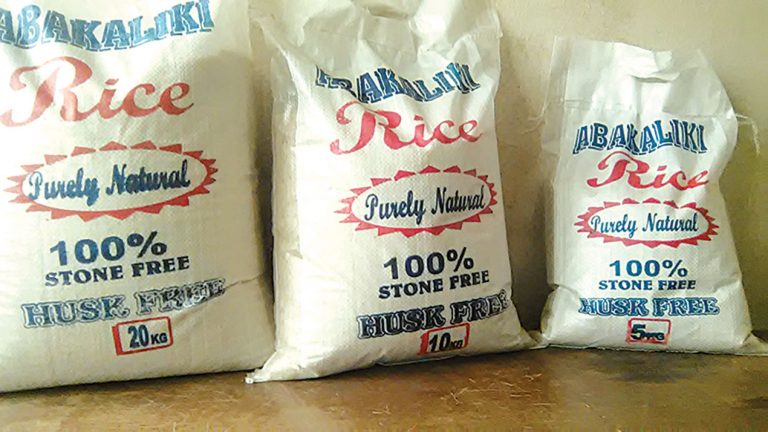
In a surprising and abrupt move, the government has withdrawn its recently announced plan to sell subsidized 50-kilogram bags of rice to public servants at the discounted price of N40,000.
This decision, which was initially intended as a relief measure amidst ongoing national protests against rising food prices and inflation, has left many Nigerians bewildered, as no official reason was provided for the sudden reversal.
The announcement of the subsidized rice sales came on August 1, 2024, through a memo issued by the Ministry of Special Duties and Inter-Governmental Affairs’ Human Resources Management Department. The initiative was a direct response to the escalating national protests that had gripped the country, driven by widespread discontent over the spiraling cost of living and, in particular, the soaring prices of essential food items like rice.
Tekedia Mini-MBA edition 16 (Feb 10 – May 3, 2025) opens registrations; register today for early bird discounts.
Tekedia AI in Business Masterclass opens registrations here.
Join Tekedia Capital Syndicate and invest in Africa’s finest startups here.
In the memo, which was signed by Mrs. Jaiyesim Abimbola Aderonke, Director of Human Resource Management, the government outlined a plan to sell 50-kilogram bags of rice at a subsidized rate of N40,000 per bag to public servants in Abuja. This was part of a broader strategy to alleviate the economic pressures facing government employees, many of whom are struggling to cope with the effects of inflation and the devaluation of the naira.
Public servants were instructed to register their interest through a Google form on the Office of the Head of the Civil Service of the Federation (OHCSF) website and submit the necessary documentation to their respective Directors of Human Resources for endorsement.
The distribution of the rice was to be overseen by designated officials, with the involvement of the Chairman of the Joint Union Council of the Ministry to ensure transparency and fairness in the process.
The Sudden Withdrawal
However, just a day later, on August 2, 2024, a follow-up memo announced the abrupt withdrawal of the subsidized rice sale. The memo, again signed by Mrs. Jaiyesim, offered no explanation for the decision and simply stated that the earlier directive had been rescinded, with further details to be communicated at a later date.
“I am directed to refer to our internal circular in the Ministry (Federal Ministry of Special Duties and Inter-Governmental Affairs) of 1st August. 2024 on the above subject matter and to inform you that the Internal Circular is hereby withdrawn.
“Further details will be communicated in due course. Please, bring the contents of this internal circular to the attention of staff in your respective Departments and Unite for their information and proper guidance,” Jaiyesim announced.
The unexpected reversal has sparked confusion and frustration among public servants, many of whom had been hoping on the subsidized rice to manage their household budgets amid the ongoing economic crisis. The lack of transparency and communication from the government regarding the reasons behind the withdrawal has only added to the growing sense of discontent among the population.
Background: The Hunger Crisis and Nationwide Protests
The decision to offer subsidized rice to public servants was made against the backdrop of a severe hunger crisis that has been brewing in Nigeria for years. The crisis, driven by a combination of factors including high inflation and currency devaluation, has led to a sharp increase in the prices of staple foods, pushing many Nigerians into food insecurity.
Rice, a staple food for millions of Nigerians, has been particularly affected by these economic pressures. In recent months, the price of rice has skyrocketed, reaching up to N90,000 per 50kg bag – making it unaffordable for a significant portion of the population. This has led to widespread public anger and frustration, culminating in the national protests that began on August 1, 2024.
The protests, which have continued for days, have seen thousands of Nigerians take to the streets in major cities across the country, demanding government action to address the rising cost of living and provide immediate relief to those most affected by the crisis. The demonstrators have called for the government to implement measures to stabilize food prices, improve access to essential goods, and address the underlying economic issues that have contributed to the current situation.
Government Efforts
The federal government’s major response to the hunger crisis included the distribution of rice and funds to states. This is in addition to the subsidized rice initiative, which was announced as a part of broader efforts to mitigate the impact of rising food prices.
However, the sudden withdrawal of this measure has cast doubt on the government’s commitment to addressing the crisis. Critics argue that the government’s actions have been inconsistent and insufficient in the face of a growing emergency.
Furthermore, the timing of the withdrawal has fueled speculation that the government may be struggling with logistical challenges or facing pressure from other quarters, leading to the reversal. Some analysts suggest that the government’s fiscal constraints, exacerbated by the economic fallout from the recent economic reforms and ongoing security challenges, may have played a role in the decision to halt the rice sales.
Previous Government Interventions
The subsidized rice initiative was not the first time the government has attempted to intervene in the food market to alleviate pressure on Nigerians. In previous months, similar efforts were made to distribute grains from strategic reserves and provide food aid to vulnerable people across the country.
However, these interventions have often been criticized as being too little, too late, with many Nigerians continuing to struggle to access affordable food.



